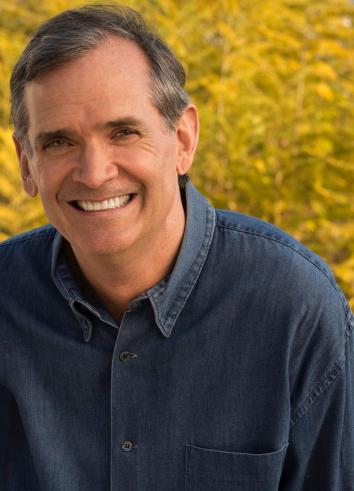Sean Strub may not be a household name, but he’s been in the trenches of gay and AIDS activism since before he tested HIV-positive back in 1985. Strub protested with ACT UP at St. Patrick’s Cathedral and the FDA, and he was part of the group that covered Sen. Jesse Helms’ house with a giant “condom.” He was the first openly HIV-positive man to run for Congress; he started POZ, a magazine for HIV-positive people; and he founded the Sero Project, an organization dedicated to destigmatizing and decriminalizing HIV and AIDS.
Given Strub’s impressive movement résumé, it’s surprising how perfunctorily Body Counts: A Memoir of Politics, Sex, AIDS and Survival covers that aspect of his life. Compared with, say, the rage-inducing, tear-jerking documentary film How to Survive a Plague, which chronicles many of the same events and debates (and in which Strub appears), Body Counts is dry and at times, it must be said, downright dull.
That doesn’t mean that the author lacks passion—it’s simply that his most intense feelings seem to center on topics other than the AIDS protest movement that takes up so much of the text.
At first blush, it would appear that Strub’s true love is name-dropping. The opening chapter recounts the Iowa teenager’s first job in Washington, operating an elevator in the U.S. Capitol Building—a perfect launching pad for Democratic Party connections. His ascent through political backrooms and closeted gay social circles is swift—he moves from Beltway machers like Alan Baron to elected politicians like Rep. Gerry Studds to celebrities like Tennessee Williams or Andy Warhol in just a few years and a handful of chapters.
To his credit, Strub admits to an obsession with making famous friends. After recounting a particularly bald-faced attempt to ingratiate himself with Warhol’s circle—while hanging around the offices of Interview magazine, Strub removed a paper clip from the innards of a Selectric typewriter, thus earning the compliment “That’s really neat that you can fix things” from Warhol himself—he notes that “Washington had taught me that proximity to power was an analogue for power. In New York, glamour works the same way.” Sometimes, Strub seems plain old star-struck—as when he describes overhearing a friend talking on the telephone with Bianca Jagger or when he reports that during the 1980s he spent “dozens of weekends” at the swank Biddle family estate in Pennsylvania—but networking skills are also essential to what is clearly Strub’s greatest enthusiasm: direct-mail fundraising.
If some sections of the book lack zest, that’s never a problem when Strub talks donor appeals and response rates. He builds genuine suspense—seriously—when describing his attempts to persuade Williams or Keith Haring to put their names on fundraising campaigns, or when he recalls specific dollar amounts raised by letters sent out in the 1980s. He’s also able to tap into feelings of frustration generated by events that occurred decades ago, as when he complains that there were always members of ACT UP who believed he was profiting from the organization, even though he only once took on the group as a paying client.
If there’s a key phrase in the 400-page memoir, it comes when he declares, “I chose to be both an entrepreneur and an activist.” Strub presents his entrepreneurial spirit as an intrinsic part of his personality—though he doesn’t provide any details about the ventures, he mentions that he bought a restaurant when he was just 19 and an apartment building at 22. Over the years, he started a direct-mail business, formed a company that distributed cardpacks (“decks of advertising cards that we sent to gay and lesbian households across the country”), and operated a mail-order pharmacy geared to people with HIV. Like many serial entrepreneurs, he seems constitutionally incapable of letting funds sit unleveraged: He reports that he started POZ with the proceeds from a viatical settlement on his life-insurance policies.
Strub found himself on the front lines of the AIDS crisis because he was a political junkie who was also a socially and sexually active gay New Yorker who tested HIV-positive early in the epidemic. He lost a life partner and hundreds of friends and lovers to AIDS, and by 1995 he was so sick that he was sure that he, too, would soon be dead. Thanks to protease inhibitors and the other HIV drugs that followed, he survived. It feels churlish to complain that Strub isn’t particularly insightful or reflective about his Lazarus experience, but he seems still to be processing it nearly 20 years later. Fortunately, other gay men also survived the plague years, so those stories will surely be told. Strub, though, is a rare figure in the community: a businessman who has consistently channeled his entrepreneurial zeal toward activist goals. I hope he’ll write more about that some day soon.
